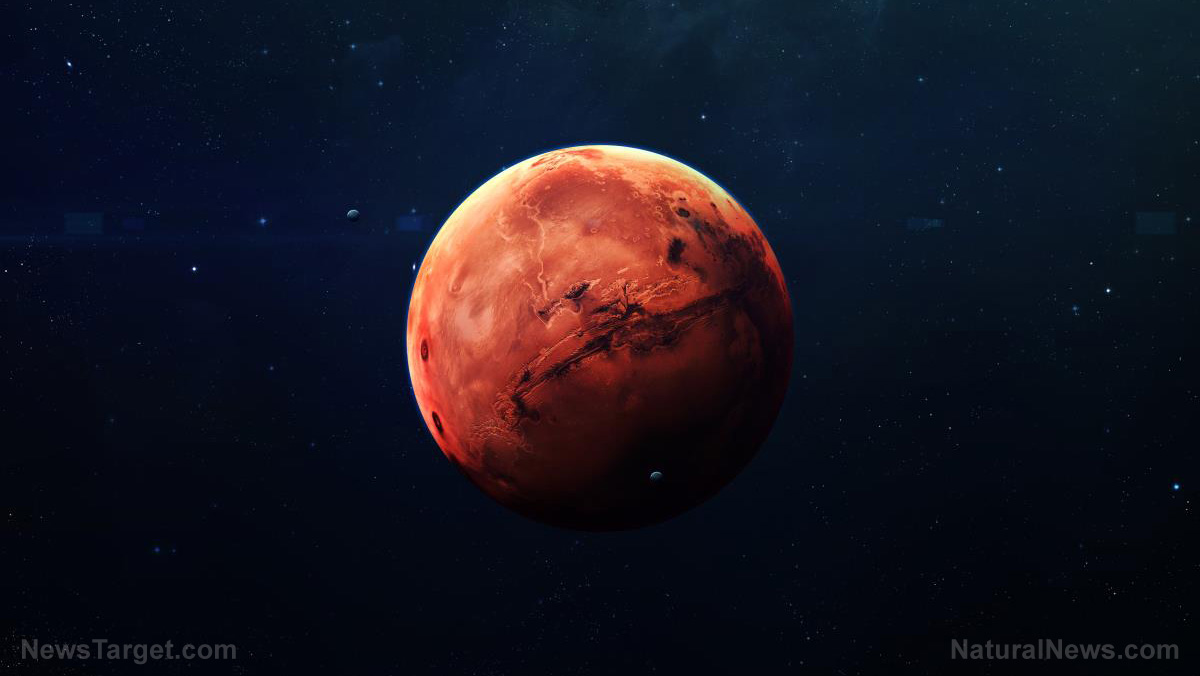 Parler
Parler Gab
Gab
Where did the water on Mars go?
Scientists long suspected that liquid water used to flow abundantly on Mars due to the presence of many ancient, dried out valleys and river channels on the planet's now-arid surface. Strong evidence came in 2008 when the National Aeronautics and Space Administration's (NASA) Phoenix Mars Lander confirmed the presence of water ice on the planet. As to how Mars lost its water, the running theory is that the majority escaped from the atmosphere into outer space due to the solar wind and ultraviolet rays. But the amount of water that could possibly leak into space did not match the amount that likely existed on the planet before.Past studies suggested that an ocean containing roughly 330 to 4,920 feet, or up to half the water in the Atlantic Ocean, once covered the planet. But according to recent data, at the rate water disappeared from the Martian atmosphere, Mars lost a global ocean that was only around 10 to 82 feet deep over the course of 4.5 billion years.
With that in mind, the researchers analyzed data from NASA's Planetary Data System, as well as data from Martian rovers and orbiters, to investigate how Mars became so dry. They looked at Martian water in all its forms – including vapor, liquid and ice – and the chemical composition of the planet's current atmosphere and crust.Of particular interest to the researchers was the ratio of deuterium to regular hydrogen. As it turned out, hydrogen has multiple forms – the most abundant one on Earth only has a proton within its atomic nucleus while rare deuterium contains a neutron in addition to a proton.
Also called "heavy hydrogen," deuterium is less likely to escape into space than regular hydrogen due to its density. And if it did escape, Mars' upper atmosphere would contain a larger amount of deuterium.
How water on Mars ended up in the planet's crust
By comparing the levels of hydrogen and deuterium in Mars, the researchers were able to estimate how much Martian water might have disappeared over time. In all, they found that the planet lost 40 to 95 percent of its water during the Noachian period around 4.1 billion to 3.7 billion years ago. However, the loss of water to space cannot explain such large amounts of water, as well as the observed deuterium-to-hydrogen ratio.
To account for these irregularities, the researchers posited that 30 to 99 percent of the Red Planet's water was trapped in the Martian crust while the remaining water was lost to space. They explained that the water got trapped after interacting with rocks. In turn, this interaction formed clays and other hydrous minerals that contain water as part of their mineral structure.
This process also happens on Earth. But unlike Mars, the planet has active and robust tectonic processes that ensure that the embedded water gets released back into the atmosphere through volcanism. The Red Planet, on the other hand, has no tectonic plates and no active volcanoes. Therefore, water gets incorporated into the Martian crust permanently. (Related: Proof of water for future explorers: New images from NASA show “underground ice cliffs” on Mars.)
"The hydrated materials on our own planet are being continually recycled through plate tectonics," said Michael Meyer, lead scientist for NASA's Mars Exploration Program, who was not part of the study.
"Because we have measurements from multiple spacecraft, we can see that Mars doesn't recycle, and so water is now locked up in the crust or been lost to space."
The findings of the study were published on March 16 in the journal Science.
Read more fascinating studies about Mars at Space.news.
Sources include:
Supplementing with vitamin D found to improve blood pressure in overweight children
By Zoey Sky // Share
Steve Quayle: Truth about aliens and destruction of human race will be revealed
By Kevin Hughes // Share
Qatari study finds natural immunity is 97% EFFECTIVE against severe COVID even after 14 months
By Ramon Tomey // Share
Curcumin found to stop cancer cell growth
By Zoey Sky // Share





